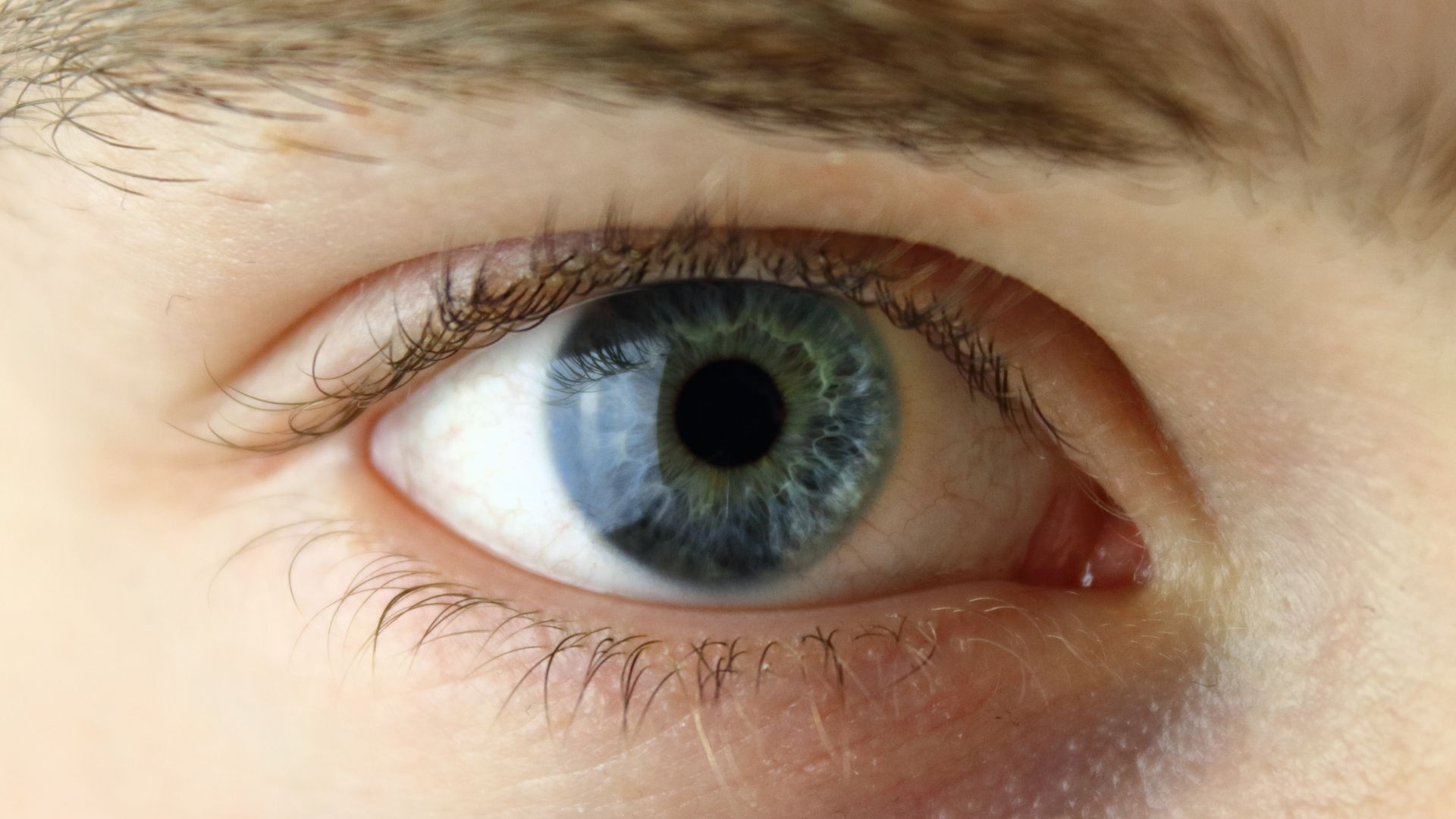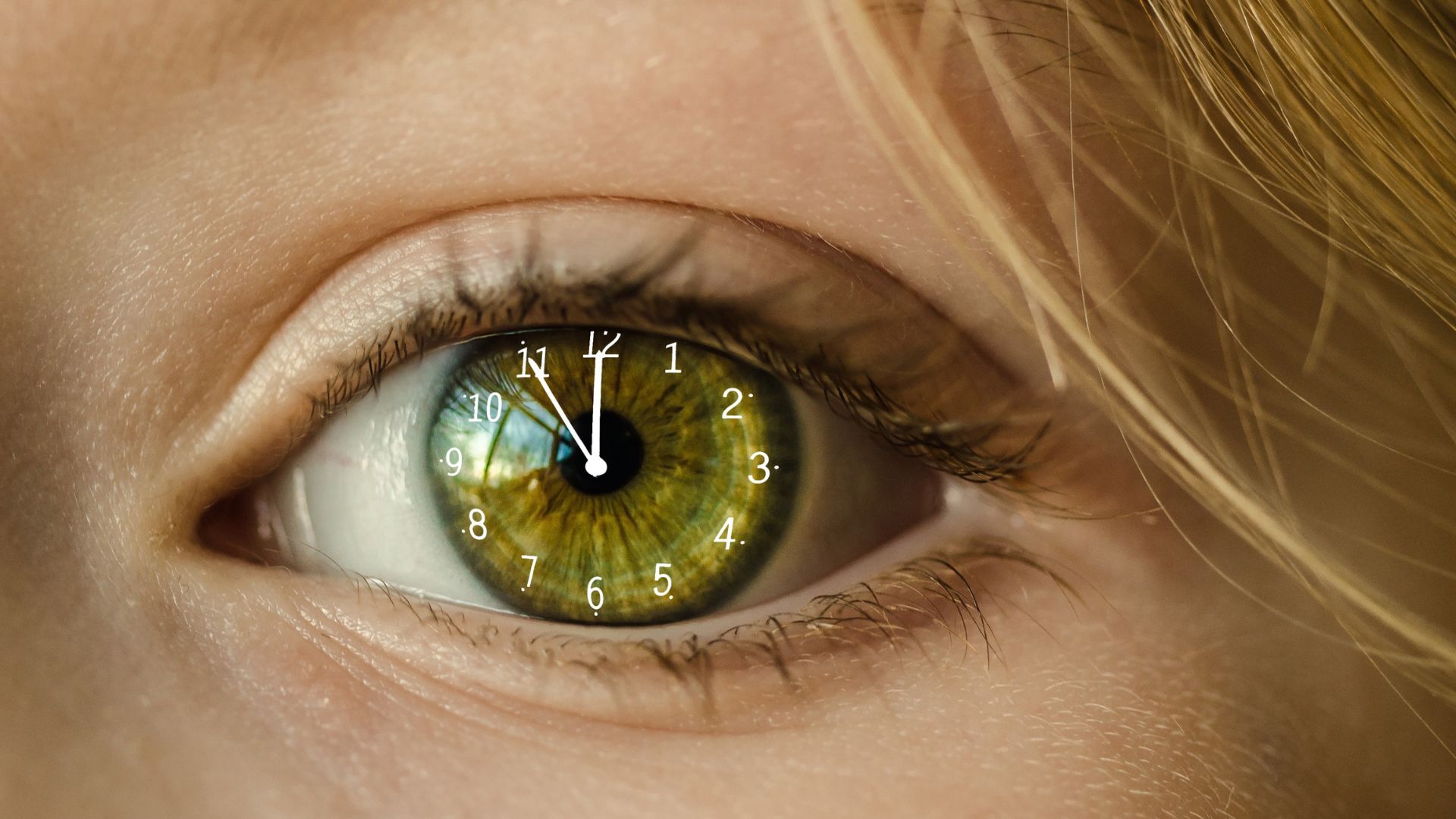Did you know 1 in 7 Canadians over 50 already show initial indicators of vision-threatening retinal changes? Yet, 40% delay seeking care until symptoms worsen. At Ideal Eyecare in Mississauga, our optometrists often see this gap between early detection and awareness.
Subtle vision changes often go unnoticed. You might think blurred text or trouble seeing faces in dim light are just part of aging. But, research from Mayo Clinic and CNIB shows these could be early signs of a serious condition affecting central vision.
Ontario’s aging population faces unique risks. Mississauga residents aged 55+ report delayed diagnoses 23% more often than the national average, according to 2023 provincial health data. If you notice faint distortions in straight lines or need brighter light for reading, it’s not just a hassle. It’s your eyes trying to tell you something important.

Your central vision is like a camera’s focus button. When macular degeneration hits, that sharpness starts to fade. This condition changes how you see faces, read, and move around. Let’s look at the biological changes and their effects on daily life.
Special cells in your macula handle sharp details right in front of you. At Ideal Eyecare clinics, advanced OCT scans show how these cells thin over time. There are two main reasons for this:
Dry AMD (affecting 85-90% of cases) develops slowly as waste builds up. Patients in Mississauga often notice:
Wet AMD progresses faster because of leaking blood vessels. CNIB data shows:
Macular changes bring specific challenges Canadians face right away. Patient logs from Mississauga clinics highlight three main issues:
Straight lines looking wavy often signals AMD progression. You might:
Ontario’s winter conditions make these problems worse. Glare from snow and AMD cause:

Spotting the first signs of macular degeneration is key to preventing vision loss. At Ideal Eyecare, we focus on early detection. We use personalized monitoring strategies, tailored to Ontario’s unique environment. Let’s look at the warning signs that need your attention right away.
Small changes in your central vision are often the first signs. Light changes in Canada, from bright summer to dim winter, can hide these signs if you’re not careful.
When door frames or text lines seem wavy, it might mean fluid buildup under the retina. Our Mississauga patients often notice this when using the Amsler grid during eye exams.
Dark spots that block your central vision can appear suddenly. These spots start small but grow if not treated. Ideal Eyecare has a self-check plan that includes:
Knowing how symptoms progress helps in getting timely treatment. Ontario’s public health guidelines suggest different testing frequencies based on these markers.
Early symptoms might slow down reading or color matching. As the disease progresses, you might find it hard to recognize faces or need more light for tasks.
Difficulty telling navy from black or pastel colors often comes before bigger vision problems. Our doctors use special tests to measure these changes, covered by OHIP when needed.
Remember, light changes with the seasons can affect how you notice symptoms. Ideal Eyecare’s patient education program includes tips for adjusting to these changes. It also offers OHIP-eligible monitoring plans based on your risk factors.

Getting macular degeneration isn’t just luck. It’s influenced by who you are and your choices. We’ll look at why some Ontarians are at higher risk and how to prevent it.
Canadian National Institute for the Blind data shows clear trends:
Northern Indigenous communities face special challenges, CNIB data shows:
Public Health Ontario’s Peel Region data highlights smoking’s dangers:
Our mix of city and country life means we need to protect our eyes from the sun:

Finding macular degeneration early is key to saving your sight. Modern treatments in Mississauga can slow down vision loss. We’ll look at how early detection affects treatment and local testing options.
Starting treatment early can keep your vision sharp. Studies show:
Our city has advanced tools for early macular detection. Ideal Eyecare offers quick assessments with:
OHIP covers key AMD tests with these codes:
Many patients use OHIP and private insurance together. This way, they get better supplement choices. Local success stories show early detection helps keep driving and reading skills for years.

Knowing about screening helps keep your eyes healthy in Ontario. Public health and community groups make care easy to get, no matter where you live.
The Ontario Ministry of Health has clear plans for spotting age-related macular degeneration. Ideal Eyecare sticks to these plans with tailored screening.
If you have diabetes or a family history of AMD, you’ll get:
Ontario has practical help through local partnerships. These resources help you adjust to vision changes and stay independent.
Mississauga residents get:
Thanks to Ideal Optical’s partnership with CNIB:

Canadians can lower their AMD risk with simple changes. Eating right and making lifestyle choices can help a lot. Let’s look at ways that fit Canada’s climate and health system.
The Canadian Food Guide is key for eye health. Here are two important changes:
Eat 2-3 servings of kale, spinach, or Swiss chard daily. One serving is 1 cup raw or ½ cup cooked. These greens have lutein and zeaxanthin, which protect your eyes. A Toronto study showed eating greens can lower AMD risk by 35%.
Health Canada suggests 500 mg EPA/DHA daily for adults. Salmon and trout are good sources. For those who don’t eat fish, algae supplements work too. Add vitamin E foods like almonds to help your body absorb these nutrients.
Modern life needs special eye care:
Ontario’s tech workers spend 9.7 hours on screens daily. Ideal Optical’s lenses block 45% of blue light. Follow the 20-20-20 rule to reduce eye strain.
Hypertension Canada advises keeping blood pressure under 135/85 mmHg. High blood pressure harms eye blood vessels. Exercise and less sodium (under 2000mg daily) help keep blood flow good for your eyes.
Combining these tips is best. Start with one change from each area. Mississauga residents can get personalized plans from local optometrists who know about eye nutrition.

Patients in Mississauga can get personalized treatment plans. These plans mix medical help and support to adapt to vision changes. This way, people can stay independent. Let’s look at the best ways to manage vision loss through local clinics and experts.
Anti-VEGF injections are top for treating wet macular degeneration. They stop blood vessels from growing the wrong way. This helps keep your vision stable. Mississauga clinics make sure these treatments are affordable, following Ontario’s Trillium Drug Program.
Your treatment plan might include:
Clinics like Ideal Eyecare tailor your schedule. This makes treatment easier and more effective.
For harder cases, doctors might use:
This mix of treatments tackles different parts of the disease.
Mississauga has special support through clinics like Ideal Optical. They help you adjust to vision changes with useful tools and methods.
Their opticians offer:
Studies show 89% of seniors improved their reading skills.
Learn to use:
Training covers tasks like online shopping and virtual doctor visits. Many programs are funded by Ontario Disability Support Program.

Early detection of macular degeneration needs teamwork with eye care experts. At Ideal Eyecare, our team uses the latest tools covered by OHIP. These tools help us check your vision health deeply. Working with us makes regular screenings easy, focusing on your specific needs.
Why choose our Mississauga clinic:
Don’t let symptoms get worse – OHIP covers eye exams for adults 65+ and those at risk. Our technicians can check if you’re covered when you book.
Join our macular degeneration awareness campaign with these easy steps:
Your vision needs care from experts who know Ontario’s healthcare. Book your eye exam today and learn about your eye health.
Spotting macular degeneration early is key to saving your vision. Early detection can change your life, thanks to Ontario’s eye care research. If you see blurry spots or distorted lines, act fast. This helps keep your central vision sharp for reading, driving, and seeing faces.
Ideal Optical in Mississauga is at the forefront of AMD care. We use the latest tools, meeting Public Health Ontario standards. Our team watches for small vision changes with OCT scans and custom tests. We start treatments early and give advice on healthy eating.
After 50, getting your eyes checked every year is essential, even more so if you have a family history of eye diseases. In Mississauga, you can find help through Trillium Health Partners and our low-vision services. We also help you quit smoking and recommend UV-protective glasses.
Choose experts who focus on long-term eye health, not just quick fixes. Book a macular degeneration screening at Ideal Eyecare today. Taking care of your eyes now means more clear days ahead.
BOOK YOUR COMPREHENSIVE EYE EXAM WITH DR. SHARON GARCHA
Got questions or need assistance? Contact us today, and we’ll help you find the perfect pair of eyewear tailored to your style and needs!
Ideal Optical / Ideal Eyecare has been Mississauga’s trusted source for personalized, expert eye care for over 30 years. Our team delivers tailored solutions to keep your vision healthy for life.
© 2025 Ideal Eyecare / Ideal Optical. All Rights Reserved.